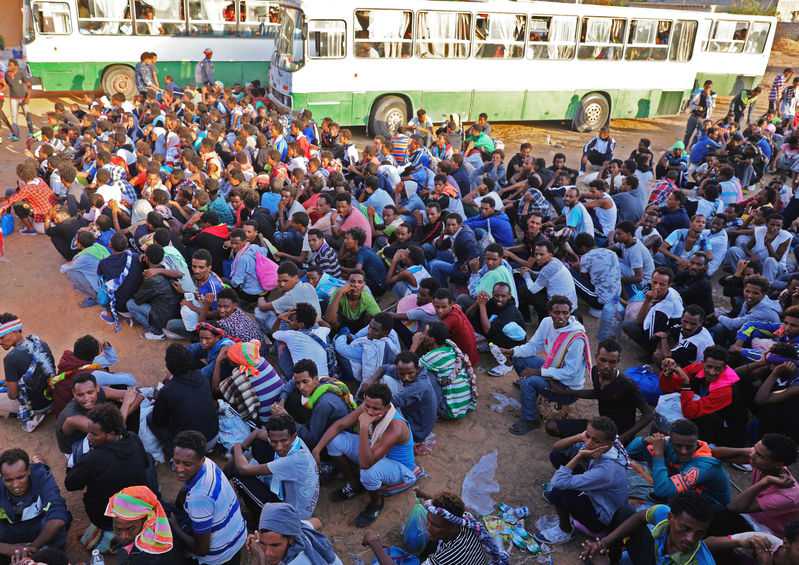U.N. reaches ceasefire for Libyan capital as migrants escape
06 September, 2018

A ceasefire has been signed between armed factions fighting over the Libyan capital, the United Nations said on Tuesday, after more than a week of violence inside Tripoli.
Dozens of people have been killed in fighting engulfing Tripoli as rival armed groups vie for power and money in the chaos persisting in the oil producer since the toppling of Muammar Gaddafi in 2011.
“A ceasefire agreement was reached + signed today to end all hostilities, protect civilians, safeguard public and private property,” the U.N. mission in Libya (UNSMIL) said in a statement.
Tripoli’s only functioning airport, Matiga, would also be reopened after being closed since Friday, the United Nations said, without giving any details beyond the text of the agreement.
Commanders of some factions could be seen in pictures published by UNSMIL, while others seemed to have been absent.
It was not clear how the ceasefire would be implemented, as militias have ignored previous calls to lay down arms by the U.N.-backed government, which is largely powerless.
One armed faction, the 7th brigade from Tarhouna town south of the capital, which had attacked Tripoli with other factions, accepted the ceasefire, spokesman Saad al-Hammali said,
Last week, local officials brokered a ceasefire that did not hold.
There is no police or army or functioning state to enforce peace in a country ruled by armed groups who defy authority and form flexible alliances.
Tripoli is formally controlled by the internationally recognized Government of National Accord, but armed groups working with it act with autonomy. Eastern Libya is controlled by a rival administration.
“Today does not aim to fix all the Libyan capital’s security problems; it seeks to agree on a broader framework on the way to start addressing the issues,” UNSMIL quoted U.N. Special Envoy Ghassan Salame as saying.
The fighting had started because armed groups outside Tripoli had opposed a cartel of four “super militias” controlling access to state funds and foreign currency at a huge discount from the central bank.
TAG(s):
